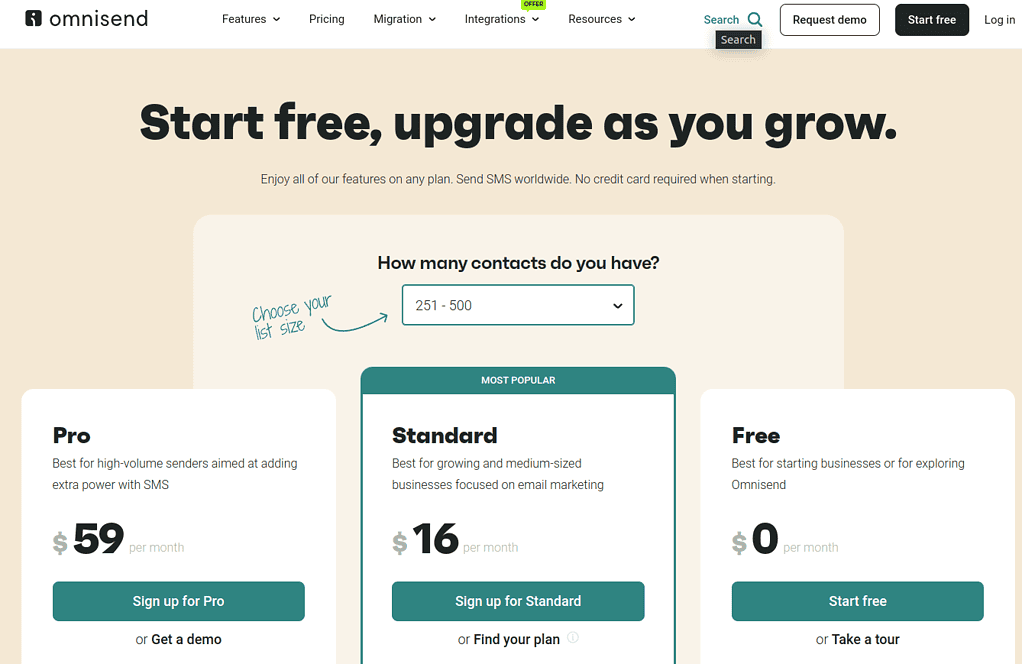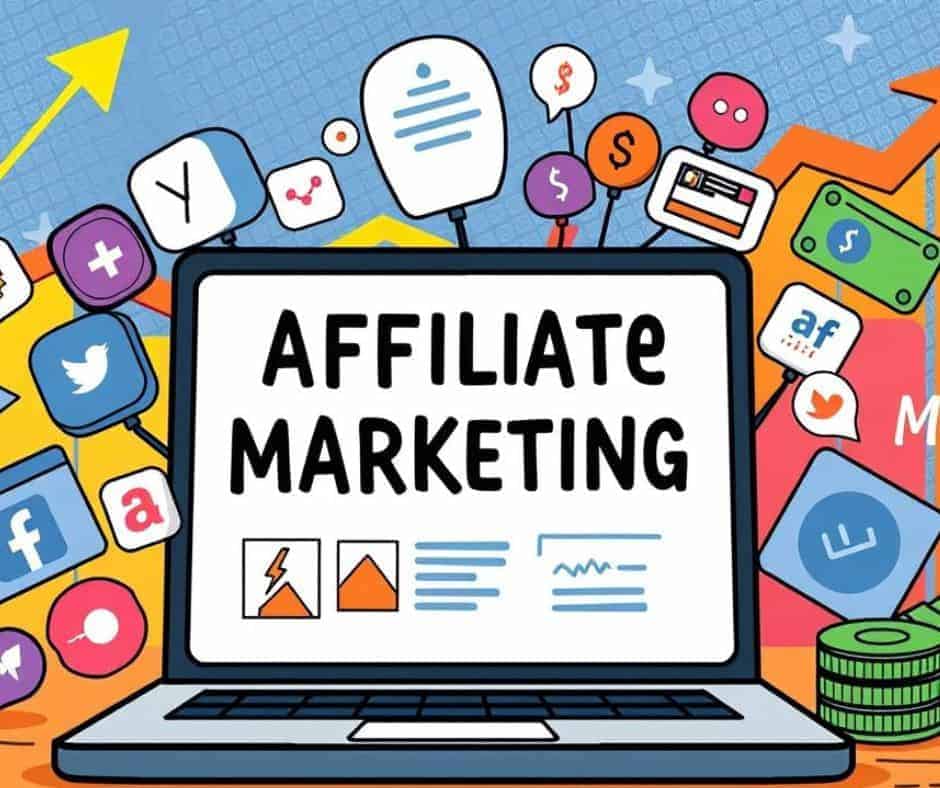Is Selling eBooks Profitable? 7 Tips To Make Money Selling eBooks
Hook:
In the ever-evolving world of literature, finding the perfect hook to capture readers’ attention has become more crucial than ever.
Whether you’re an aspiring author or a seasoned writer wondering how much do ebooks make, mastering the art of the hook is essential. After all, it’s that first sentence or paragraph that can make or break a reader’s decision to delve deeper into your work.
One way to craft a captivating hook is by tapping into the curiosity of your audience. Pose a question or present a thought-provoking statement that immediately piques their interest.
For example, if you’re writing a crime thriller, start with a line like “She never imagined that her best friend would turn out to be her worst enemy.” This immediately grabs attention and entices readers to discover more about the characters and their story.
Another effective approach is to introduce an intriguing or unusual scenario that sets the tone for your narrative. Begin your story with a sentence like “The clock struck midnight, and suddenly the house came alive with eerie whispers and unexplained footsteps.”
This creates a sense of suspense and mystery, compelling readers to continue reading in order to uncover the secrets behind the haunting events.
Lastly, knowing the current trends in book genres can also help you develop a hook that appeals to a wider audience. Research the best-selling book genres of the year, such as romance, mystery, or science fiction, and tailor your hook accordingly. For instance, if romance novels are dominating the charts in 2018, start with a line that evokes emotions like “Her heart raced as she locked eyes with a stranger across the crowded room, unaware that he would soon change her life forever.”
Context:
Context plays a vital role in the success of any book, including short stories. It involves understanding the needs and preferences of your target audience and tailoring your writing to their tastes.
Another important aspect of context is knowing how to become a short story writer. While creativity and storytelling skills are essential, understanding the format and structure of a short story is equally important.
Developing a unique writing style and mastering concise storytelling techniques can set you apart from the competition and capture the attention of readers.
In conclusion, while the potential to make money with Kindle short reads is enticing, context is key. Understanding the best-selling ebook categories, knowing how to become a short story writer, and staying relevant are all crucial factors in creating successful and profitable short reads.
So, dive into the world of context, craft compelling stories, and embark on your journey to becoming a sought-after writer.
Thesis Statement:
Thesis Statement: Exploring Lucrative Opportunities in the World of Writing and Self-Publishing
The world of writing has expanded beyond traditional channels, offering a multitude of opportunities to writers seeking to monetize their skills.
From submitting short stories for money to creating ebooks that sell, the possibilities are vast and enticing. This article seeks to delve into the realm of profitable writing ventures, providing insights into where to submit short stories for money and highlighting ebook topics that sell.
Platforms like Kindle Direct Publishing (KDP) and Smashwords provide writers with the tools and global reach required to make money selling ebooks.
Shift from Long-Form to Short eBooks:
In recent years, the preference for short eBooks has grown, with readers increasingly valuing concise and actionable content.
Rather than dedicating hours to a long read, modern readers are drawn to shorter, more targeted works that focus on specific problems or topics. This shift has made short eBooks an appealing option for creators looking to quickly deliver value.
Section 1: The Changing Landscape of eBook Sales
Evolution of eBooks:
Gone are the days when physical copies were the only way to enjoy a good read. With the advent of digital technology, eBooks have become increasingly popular, offering convenience and accessibility to readers around the globe.
One interesting aspect of this evolution is the emergence of best selling eBook topics. While traditional publishing often adhered to popular genres such as romance or mystery, the world of eBooks has opened up new possibilities.
Curious about how many copies the average eBook sells? The truth is, the numbers vary significantly. While some eBooks manage to sell thousands or even millions of copies, the majority of titles might sell only a few hundred.
Additionally, the rise of platforms such as Kindle has fueled the popularity of short stories in eBook form. Kindle Short Stories are becoming increasingly popular as readers seek quick, engaging reads in their busy lives.
In conclusion, the evolution of eBooks has revolutionized the world of publishing. Best selling eBook topics now cater to a wide range of interests, while the average eBook’s sales numbers can vary greatly. The rise of Kindle Short Stories has also provided a platform for concise and captivating storytelling.
Current Market Trends:
In this digital era, one cannot overlook the impact of ebooks on the publishing industry. From self-help guides to bestselling novels, ebooks have revolutionized the way we consume written content.
It’s no surprise that some ebooks have made millions of dollars in sales, captivating readers and authors alike. But just how many copies does the average ebook sell?
In recent years, the rise of short reads online has also disrupted the traditional publishing landscape. With attention spans dwindling and time becoming a precious commodity, readers are increasingly turning to shorter, bite-sized pieces of content.
As the ebook market continually evolves, it’s crucial for authors and publishers to stay informed about current trends. Understanding the dynamics of successful ebooks that made millions, can help them navigate this ever-changing landscape.
The Popularity of Short eBooks:
One of the main reasons for the surge in popularity is the convenience and accessibility of short ebooks. In a time where attention spans are growing shorter, these bite-sized reads provide a quick escape for busy individuals.
Whether it’s a short story that can be finished during a commute or a concise guide on how to achieve a specific goal, short ebooks offer a valuable and time-efficient way for readers to consume content.
How to write a short ebook has become a frequently asked question among aspiring authors. Crafting a short ebook requires skillful storytelling and precise writing.
It’s essential to outline the main points or plot carefully and ensure that every word counts. With a limited word count, every sentence needs to carry weight, drawing the reader in and delivering a satisfying reading experience in a condensed format.
Alternative eBook Platforms:
While Amazon and Kindle may be dominant, there are many other platforms where authors can distribute short eBooks and maintain full control of their sales and marketing.
For example, Wix has become a popular option for creators who want to build their own website and sell eBooks directly to consumers.
By using a platform like Wix, authors can set up dedicated sales pages, integrate payment gateways like PayPal or Stripe, and bypass third-party commission fees entirely.
Gumroad is another standout platform for selling eBooks. It allows creators to host digital products and sell directly to their audience, keeping more of the profits in the process.
An example of Gumroad’s success is seen with Sean McCabe, who has sold short eBooks on topics like creativity and business, generating significant revenue through his personal branding.
Similarly, Sellfy offers a straightforward, user-friendly platform for authors to upload, promote, and sell short eBooks without the complexities of traditional publishing.
A real-life example includes Olga Kay, a content creator who sells her eBooks about online video production and entrepreneurship using Sellfy to connect with her audience.
Popularity of Short eBooks in Niche Markets:
Short eBooks have found great success in niche markets, where readers often seek out highly specialized information. One example is Lindsay Buroker, an author who focuses on science fiction and fantasy. Instead of producing lengthy novels, she found success by releasing a series of short eBooks targeted at fans of specific sub-genres. This strategy allowed her to cater to a niche audience and continuously generate sales.
The Mobile-First Trend:
With more people consuming content on mobile devices, short eBooks have adapted well to the mobile-first trend. Platforms like Thinkific and Teachable are helping authors turn their short eBooks into educational courses or digital downloads, offering mobile-friendly reading and engagement.
Authors like Melyssa Griffin, who specializes in blogging and online business, have used these platforms to not only sell eBooks but also repurpose their content into premium learning products.
Example of Microlearning Success:
The concept of microlearning—delivering information in small, digestible pieces—has driven the success of short eBooks in fields like productivity, self-improvement, and skill-building.
A real-world example is James Clear, author of the bestselling short eBook “Transform Your Habits”. By providing practical, step-by-step advice in a brief format, Clear’s eBook has sold thousands of copies directly through his website.
Section 2: Key Factors that Determine Profitability of Short eBooks
Niche and Audience:
Generally, ebooks that range between 20,000 to 50,000 words are considered a good length for Kindle books. However, it’s important to research your specific niche and audience to determine the optimal length that will resonate with them.
Lastly, understanding the most searched ebook topics can help you identify popular trends and tap into a potentially large audience. By writing about topics that people are actively searching for, you increase the chances of your book being discovered and gaining traction.
Conduct thorough research and analyze data to gain insights into the interests and preferences of your target audience. Keep in mind that a well-researched and targeted approach will increase your chances of success in the competitive world of ebook publishing.
In conclusion, when it comes to publishing a book on Kindle, understanding your niche and audience is key. Paying attention to the word count for Kindle short reads, determining the optimal book length, and exploring the most searched ebook topics will provide you with valuable insights to create content that resonates with your readers
Sub-Niche Example: Explore Topics
An example of a sub-niche that has seen success is the realm of “how-to” guides. While general “how-to” information is readily available online, there are still individuals who prefer to have a consolidated and well-structured guide at their fingertips.
Whether it’s “how to start a successful podcast” or “how to grow vegetables in small spaces”, these specific and targeted guides offer a valuable resource for readers who crave specialized knowledge. Writers who delve into sub-niche how-to guides can establish themselves as authorities in their respective fields and benefit from the consistent demand for this type of content.
When it comes to the business world, productivity is always a hot topic. Many professionals are constantly seeking ways to maximize their efficiency and optimize their workflow. This opens up a sub-niche opportunity for writers who can provide valuable insights and strategies to improve business productivity.
From “5 proven techniques for time management” to “unlocking your creativity at work”, the demand for niche productivity topics continues to grow. Entrepreneurs who tap into this sub-niche market can position themselves as experts and generate significant revenue from their targeted content.
Pricing Strategies: The Key to Successful eBook Sales
One company that has mastered this art is Amazon, with its unique ebook pricing strategy. Understanding the Amazon ebook pricing strategy can provide valuable insights for authors looking to write ebooks that sell.
Firstly, Amazon operates on a variable pricing model, offering ebooks at different price points. This not only caters to readers with diverse budgets but also creates opportunities for authors to test different pricing strategies.
By experimenting with different prices, authors can gauge the market response and determine the optimal price point that attracts readers while maximizing revenue.
Secondly, authors can leverage the power of self-help books, a genre known for its loyal readership. When writing a self-help book, it’s crucial to focus on providing valuable content that solves problems and offers actionable advice. By identifying and targeting a specific niche, authors can tailor their ebooks to meet readers’ needs and create a competitive advantage in the market.
Pricing Strategies for Maximum Profit:
Pricing can make or break the profitability of a short eBook. Authors need to strike a balance between affordability and perceived value. Some authors have succeeded with low-cost pricing strategies, often using the eBook as a gateway to upsell other services.
For example, Ali Abdaal, a doctor-turned-YouTuber, uses low-cost eBooks as part of a broader content ecosystem that includes premium online courses and workshops. His short eBook, “Productivity Masterclass,” is priced affordably but leads readers into more profitable offerings.
When it comes to selling e-books online, determining the right pricing strategy can be a challenge. To uncover effective tactics, we conducted a case study focusing on the best-selling ebook categories and book genres of 2018. Additionally, we explored the suggestions shared by authors who have successfully sold their short stories on platforms like Amazon.
Our findings revealed that the pricing strategy varies across different categories and genres. For instance, in the romance genre, we found that a lower price point, such as $0.99 or $2.99, attracted more readers and resulted in higher sales. On the other hand, in self-help and non-fiction categories, e-books priced between $4.99 and $9.99 performed better, as readers perceived higher value in these genres.
Distribution Platforms:
One popular option is selling short stories on platforms like Amazon and Reddit. These platforms provide a unique opportunity for writers to publish their work independently, without the need for a traditional publishing deal.
Selling short stories on Amazon, for instance, opens doors for authors to tap into a massive online marketplace and potentially reach millions of readers. With the ease of self-publishing, writers can upload their stories as eBooks and make them available for sale in just a few simple steps. This allows for greater flexibility in terms of pricing and control over the content.
Reddit, on the other hand, offers a different approach to distribution. Here, writers can engage with a community of readers who are eager to discover new stories.
Authors can share their short stories for free and receive valuable feedback and exposure. This interaction can not only enhance the visibility of the writer but also help improve their craft through constructive criticism and dialogue.
For those looking for traditional publishing routes, Amazon also offers a submission process for short stories through their Kindle Direct Publishing platform. Writers can submit their works directly to Amazon for consideration, potentially reaching a wider audience while benefiting from the platform’s established reputation and reach.
Overall, the landscape of distribution platforms offers aspiring authors various avenues to showcase their talent and creativity. Whether it’s self-publishing on Amazon or engaging with communities on Reddit, these platforms are empowering writers to share their stories with a global audience, making it an exciting time for the literary world.
Section 3: Marketing and Promotion Strategies
Email Marketing:
To start, if you’re interested in submitting your short stories to platforms like Amazon and Gumroad, email marketing can help you get noticed. By building a subscriber list of avid readers who enjoy short reads, you can send out regular updates about your new releases, announcements, and exclusive content. This targeted approach ensures that your work is reaching the right audience who are more likely to engage with and support your writing.
By integrating email marketing into your strategy, you can drive traffic to these platforms, share discounts and special offers with your subscribers, and increase your chances of attracting new readers.
In conclusion, email marketing offers authors a powerful means of promoting their work, reaching the right audience, and boosting book sales. If your’re wondering how to sell short stories on amazon, by utilizing this tool, authors can tap into platforms like Amazon for short stories submissions, effectively sell their ebooks online.
So, if you’re an author looking to expand your reach and connect with readers, it’s time to integrate email marketing into your book marketing strategy.
Social Media Marketing:
Social media marketing has become an essential tool for businesses to reach a wider audience and promote their products or services. With the rapid growth of social media platforms such as Facebook, Twitter, and Instagram, companies have realized the potential of these platforms in driving traffic and generating sales. However, effective social media marketing requires careful planning and execution.
One popular strategy in social media marketing is to create and distribute ebooks. Ebooks are a great way to provide valuable content to your target audience and establish yourself as an industry expert. But how short can an ebook be? The length of an ebook can vary depending on the topic and the information you want to convey. In fact, some successful ebooks are only a few pages long, providing concise and actionable information that readers can easily consume.
If you’re thinking on how to write a self help book, social media marketing can play a crucial role in its success. To write a self-help book that resonates with your target audience, it’s important to understand their needs and challenges.
In conclusion, social media marketing has revolutionized the way businesses promote their products and services. It offers a powerful platform to connect with a wider audience and drive conversions. Whether you’re writing an ebook, a self-help book, or aiming for Kindle bestseller status, incorporating social media marketing strategies can significantly boost your chances of success in the digital world.
Affiliate Marketing:
If you’re an avid reader or a writer who loves Kindle books, then affiliate marketing might just be the opportunity you’re looking for. With the rise of self-publishing and the increasing popularity of Kindle books, there’s a massive potential for earning through affiliate marketing.
One of the key factors to consider when choosing a niche for affiliate marketing is the length of the kindle books. Kindle book length has a direct impact on the reader’s interest and the conversion rate. Readers are more likely to purchase shorter books as they can finish them quickly. Therefore, promoting short and concise Kindle books can increase your chances of generating sales.
Another vital aspect to focus on for successful affiliate marketing is the trending genres in the Kindle best sellers list. Keeping an eye on the best-selling book genres in 2018 is crucial to identifying popular trends and targeting the right audience. By promoting books in popular genres, you can tap into the current demand and boost your affiliate commissions significantly.
In conclusion, affiliate marketing presents a lucrative opportunity for Kindle book enthusiasts. By understanding the dynamics of Kindle book length and staying updated on the best-selling book genres, you can maximize your earnings potential. So, whether you’re a reader or a writer, consider diving into the world of affiliate marketing and start monetizing your passion for Kindle books today.
SEO For eBooks:
One crucial aspect of SEO for eBooks is understanding how to write eBooks that sell. This involves conducting comprehensive keyword research to identify the phrases and terms that potential readers are searching for.
Content marketing is a long-term strategy that can greatly enhance the profitability of short eBooks. By creating blog posts, articles, and videos around topics related to the eBook, authors can attract organic traffic to their website.
For example, Melyssa Griffin, a blogger and online course creator, uses content marketing extensively to sell her short eBooks on blogging and business strategy. Her blog posts offer valuable insights, and she subtly promotes her eBooks as additional resources for readers who want to dive deeper into the subject.
Platforms like Wix and WordPress make it easy to integrate a blog with an eBook sales page, ensuring that authors can capture traffic from search engines.
Neil Patel, a digital marketing expert, uses SEO-optimized blog posts to rank for specific keywords related to his short eBooks. This allows him to drive continuous, passive traffic to his website, where he can promote his eBooks, courses, and other digital products.
By investing in SEO, authors can reduce their reliance on paid ads and social media, building a sustainable stream of potential buyers over time.In conclusion, implementing SEO techniques for eBooks is crucial for authors who want to increase their chances of success in the competitive eBook market.
From understanding how to write eBooks that sell to choosing the right platforms and leveraging online communities, authors can significantly enhance their visibility and ultimately drive more sales.
Section 4: Leveraging eBooks for Long-Term Revenue
Recurring Income Through Series:
One effective way to generate long-term revenue with short eBooks is by creating a series. A single short eBook can provide a burst of income, but a series keeps readers engaged over time, building anticipation for the next release. For example, Ramit Sethi, a personal finance expert, has successfully sold multiple short eBooks in a series on topics like investing, budgeting, and wealth-building. By breaking down complex topics into bite-sized eBooks, readers are more likely to purchase each installment, creating a consistent revenue stream.
Platforms like Wix and Podia allow authors to easily bundle their short eBooks into collections or offer pre-orders for future installments. This not only increases the average order value but also locks in long-term customers who are committed to following the series. Real-life examples include authors in the health and wellness space, where series on topics like “30-Day Fitness Challenges” or “Plant-Based Diet Guides” provide continuous income as readers work through each phase of the content.
Building Authority and Expertise:
Short eBooks can serve as powerful tools for establishing authority in your niche. By consistently publishing valuable content, you can build credibility, trust, and thought leadership. Pat Flynn, for instance, used his short eBook “Let Go” as a way to share his journey from being laid off to becoming a successful entrepreneur. The eBook helped position him as an expert in online business, leading to speaking engagements, podcast appearances, and consulting gigs.
For professionals looking to expand their personal brand, short eBooks act as a stepping stone. Once you’ve gained authority, additional opportunities such as public speaking, paid workshops, and high-ticket consulting services become more accessible. Paul Jarvis, author of “Company of One,” leveraged the success of his eBooks to build a reputation in minimalist entrepreneurship, eventually turning it into a thriving consulting business.
Repurposing Content for New Income Streams:
Repurposing the content from your short eBooks can unlock new revenue streams. For instance, the chapters or sections from an eBook can be converted into blog posts, webinars, or even online courses. A real-life example is Amy Porterfield, a digital marketing expert, who repurposes her eBook content into live workshops and paid webinars. By offering the same information in different formats, she is able to cater to a broader audience while maximizing the profitability of her content.
Additionally, many authors are converting their short eBooks into audiobooks, taking advantage of the growing demand for audio content. Platforms like Audible or Findaway Voices allow you to reach an entirely new audience who prefers listening to content on the go. This strategy has been successfully adopted by authors like Jay Shetty, who turned his eBook “Think Like a Monk” into a top-selling audiobook, expanding his reach and generating additional income.
Section 5: Future Predictions for eBook Profitability
The Rise of AI and Automation:
AI tools are rapidly changing the landscape for eBook creation, making it easier than ever to produce, format, and market eBooks. Tools like Jasper or Sudowrite are capable of helping authors generate ideas, outline chapters, and even assist with writing, cutting down the time needed to produce content. AI-driven design platforms like Canva can automate eBook formatting, while email marketing platforms such as Omnisend allow you to automate promotional campaigns.
AI-driven design platforms like Canva can automate eBook formatting, while email marketing platforms such as Omnisend allow you to automate promotional campaigns.
The integration of AI tools reduces the overhead cost of creating and promoting eBooks, making them even more profitable.
One emerging trend is the use of AI-powered chatbots to upsell and cross-sell eBooks to readers visiting your site. For example, if a reader purchases an eBook on “digital marketing,” a chatbot could suggest additional resources or future releases, increasing overall revenue per customer.
These innovations are paving the way for authors to streamline their business and scale their eBook sales without adding significant manual labor.
Emerging Niches:
In 2024 and beyond, topics like sustainability, remote work, and AI-driven industries are expected to see growing demand. Short eBooks focusing on how individuals and businesses can adapt to these changes are likely to become highly profitable.
For example, as companies continue to embrace remote work, there is a need for resources on effective virtual team management, productivity tools, and work-life balance.
An author who writes a series of short eBooks around these topics could tap into the growing market of freelancers, remote workers, and managers transitioning to a virtual workspace.
Similarly, the rise of AI presents an opportunity to write short eBooks on how small businesses can integrate AI tools into their operations, from automating marketing to improving customer service.
Real-life examples include authors like Mike Michalowicz, who successfully created eBooks focused on emerging business trends, positioning himself as an expert in entrepreneurial innovation.
Profitability of Multilingual eBooks:
Another emerging trend is the demand for eBooks in non-English markets. As internet access and digital literacy expand globally, the potential for translating eBooks into other languages grows.
The demand for short eBooks in languages like Spanish, Mandarin, and Hindi is rising, opening up new markets for authors.
By partnering with translation services or AI-powered translation tools, authors can offer their eBooks in multiple languages, significantly expanding their audience and increasing profitability.
Real-life examples include Seth Godin, who translated several of his short eBooks into multiple languages, successfully reaching international markets.
Platforms like Smashwords and Draft2Digital offer easy distribution to non-English-speaking markets, giving authors an edge in tapping into global sales.
Conclusion
In conclusion, the profitability of short eBooks is still very much alive and evolving. By creating a series of eBooks, repurposing content into other formats, and leveraging new AI tools, authors can maintain a steady stream of income.
The key is to stay adaptive to emerging trends like new niche markets, multilingual opportunities, and automation technologies that simplify the creation and marketing process.
To succeed in today’s eBook market, it’s essential to think long-term. Building authority, focusing on niche markets, and exploring new content formats can all enhance profitability.
As you create and market your short eBooks, you’ll discover that they are more than just one-time sales products—they are gateways to building a sustainable and scalable business.
Plus, join our mailing list for exclusive tips and updates on how to maximize your eBook revenue in 2024 and beyond!




